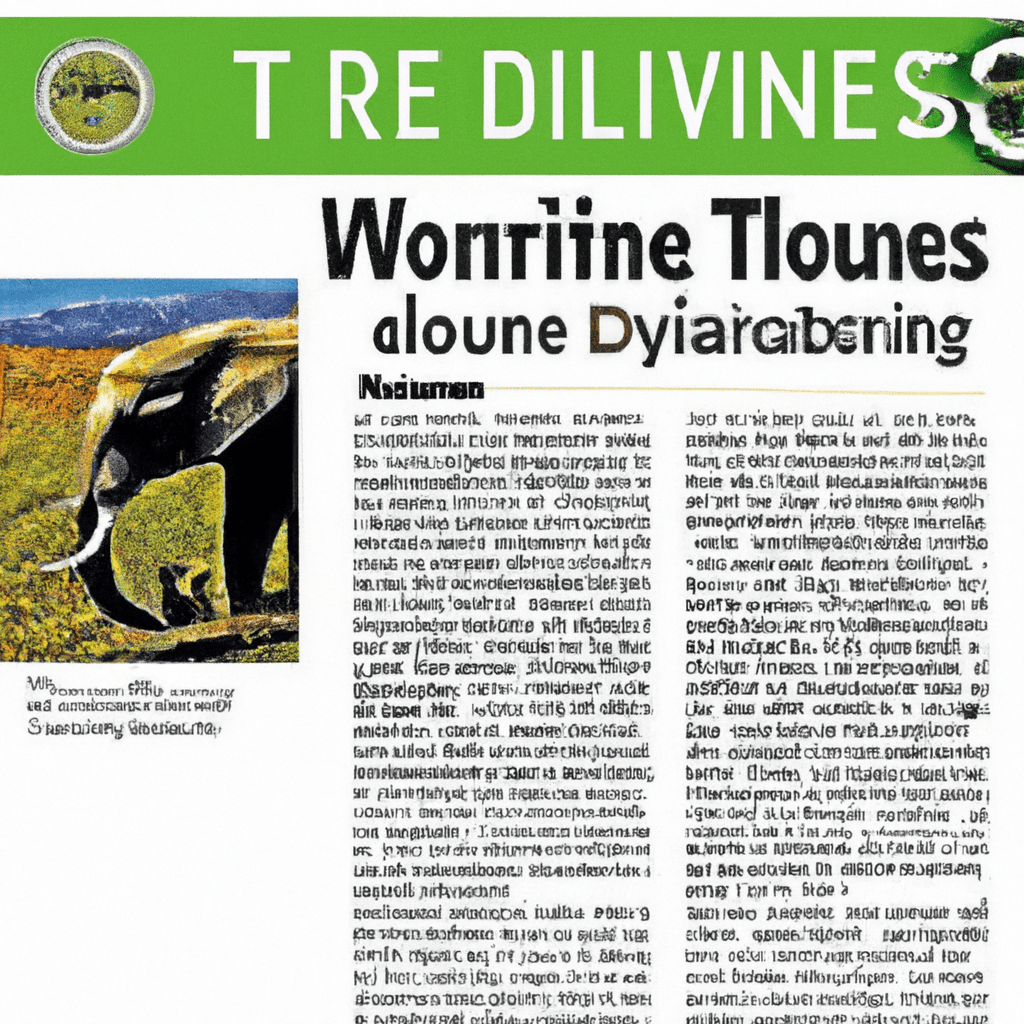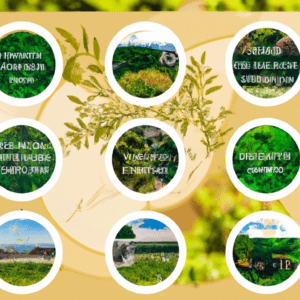Get ready to embark on a journey of ethical wildlife tourism! In this ultimate guide, we will explore the do’s and don’ts of experiencing the wonders of wildlife up close and personal. Whether you’re planning your next safari adventure or hoping to swim with dolphins, we’ve got you covered. Join us as we navigate through the fascinating world of ethical wildlife tourism, ensuring that our interactions with animals respect their well-being and contribute to their conservation. So, grab your binoculars and let’s dive into this captivating exploration!
Understanding Ethical Wildlife Tourism
The Importance of Ethical Wildlife Tourism
Ethical wildlife tourism plays a crucial role in the conservation and preservation of wildlife and their habitats. By participating in responsible wildlife tourism activities, you contribute to the protection of these magnificent creatures and help support the local communities that rely on them. It is essential to understand the value of ethical wildlife tourism to ensure that your travel experiences align with ethical and sustainable practices.
Defining Ethical Wildlife Tourism
Ethical wildlife tourism refers to engaging in activities that prioritize the well-being of wildlife, respect their natural behaviors, and promote conservation efforts. It involves responsible interactions with animals and their habitats, without causing harm or disturbance. This form of tourism encourages education, awareness, and appreciation for wildlife, while also benefiting the local communities and fostering sustainable development.
Benefits of Ethical Wildlife Tourism
Engaging in ethical wildlife tourism comes with a myriad of benefits. Firstly, it generates revenue that can be invested in the conservation and protection of wildlife. This financial support enables local communities to implement effective conservation initiatives and sustain their economies by promoting responsible tourism practices. Additionally, ethical wildlife tourism provides opportunities for education and research, allowing scientists and experts to study and understand various species, aiding in their protection. Lastly, it offers visitors unforgettable and educational experiences, fostering a deeper appreciation for wildlife and the importance of preserving their natural habitats.
Choosing the Right Wildlife Tour
Researching the Tour Operator
When planning your wildlife tour, it is crucial to thoroughly research the tour operator you choose to ensure their commitment to ethical practices. Look for operators that prioritize animal welfare, conservation efforts, and sustainable tourism practices. Read reviews and seek recommendations from trusted sources to make an informed decision. By selecting a reputable operator, you can have peace of mind knowing that your wildlife encounters will truly be responsible and ethical.
Considering the Impact on Wildlife
Before embarking on a wildlife tour, it is essential to consider the potential impact your presence may have on the wildlife. Some activities, such as overcrowded tours or invasive approaches, can disturb or stress the animals, disrupt their natural behaviors, or damage their habitats. Choose tours that limit the number of participants to minimize disturbances and ensure a positive experience for both you and the wildlife.
Evaluating the Treatment of Animals
When engaging in wildlife tourism, it is crucial to assess how animals are treated by tour operators. Avoid supporting any activities that involve animal exploitation, such as forced performances, riding, or petting wild animals. Look for operators that prioritize the welfare of the animals, offer responsible wildlife viewing experiences, and work closely with local conservation organizations. By choosing tours that prioritize the well-being of animals, you contribute to the protection rather than the exploitation of wildlife.
Supporting Conservation Efforts
One of the significant benefits of ethical wildlife tourism is its contribution to conservation efforts. Support tour operators and organizations that actively participate in wildlife conservation initiatives. These may include projects focused on habitat restoration, genetic research, anti-poaching efforts, or community education. By selecting tours that support these initiatives, you actively participate in the conservation of wildlife and their habitats, making a positive impact on the preservation of our planet’s biodiversity.


Responsible Behavior During Wildlife Encounters
Maintaining a Respectful Distance
When encountering wildlife, it is vital to maintain a respectful distance. Keeping a safe distance allows animals to go about their natural behaviors undisturbed. Respect their personal space and avoid approaching too closely, as it may cause stress or aggression. Remember, observing wildlife from a distance not only ensures your safety but also demonstrates your respect for their territory and well-being.
Avoiding Physical Contact with Wildlife
While it may be tempting to reach out and touch wildlife, it is crucial to resist this urge. Touching wildlife can be harmful to both you and the animals. Many species carry diseases that can be transmitted to humans, and touching them can potentially damage their delicate skin or feathers. By refraining from physical contact, you minimize the risk of harm to yourself and the wildlife.
Minimizing Noise and Disturbances
Ensure that you minimize noise levels and disturbances during wildlife encounters. Loud noises can startle and stress animals, potentially disrupting their natural behaviors. Keep your voice low and avoid unnecessary movements or sudden gestures that may alarm or frighten them. By maintaining a calm and quiet presence, you create a more peaceful environment for both you and the wildlife.
Respecting Habitat and Eco-Systems
Respecting the habitat and eco-systems of wildlife is essential for their well-being and continued survival. Avoid littering or leaving any traces of your visit behind, as it can harm both the animals and their environment. Follow designated paths to prevent trampling vegetation or disturbing sensitive habitats. By leaving the area as you found it, you are preserving the integrity of the eco-system and minimizing your impact on the wildlife.
Respecting Local Communities
Understanding Local Customs and Regulations
Respecting local customs and regulations is crucial when engaging in ethical wildlife tourism. Take the time to learn about the cultural norms and expectations of the local communities you will be visiting. This includes understanding their beliefs, practices, and ways of interacting with wildlife. By respecting and abiding by these customs, you demonstrate cultural sensitivity and foster positive relationships with the local communities.
Supporting Local Economies
Ethical wildlife tourism has the potential to contribute positively to local economies. Support local businesses, such as accommodations, restaurants, and souvenir shops, as they are often crucial to the economic stability of communities residing near wildlife habitats. By choosing locally owned and operated establishments, you directly support the livelihoods of community members and enable them to thrive in harmony with the surrounding wildlife.
Engaging with the Local Community
Immerse yourself in the local community during your wildlife tour. Engage with locals and take the opportunity to learn about their experiences, knowledge, and efforts in preserving wildlife. Participate in community-led initiatives or volunteer programs that focus on conservation or education. By building connections and understanding the challenges faced by local communities, you can actively contribute to their well-being and the sustainable management of wildlife tourism.
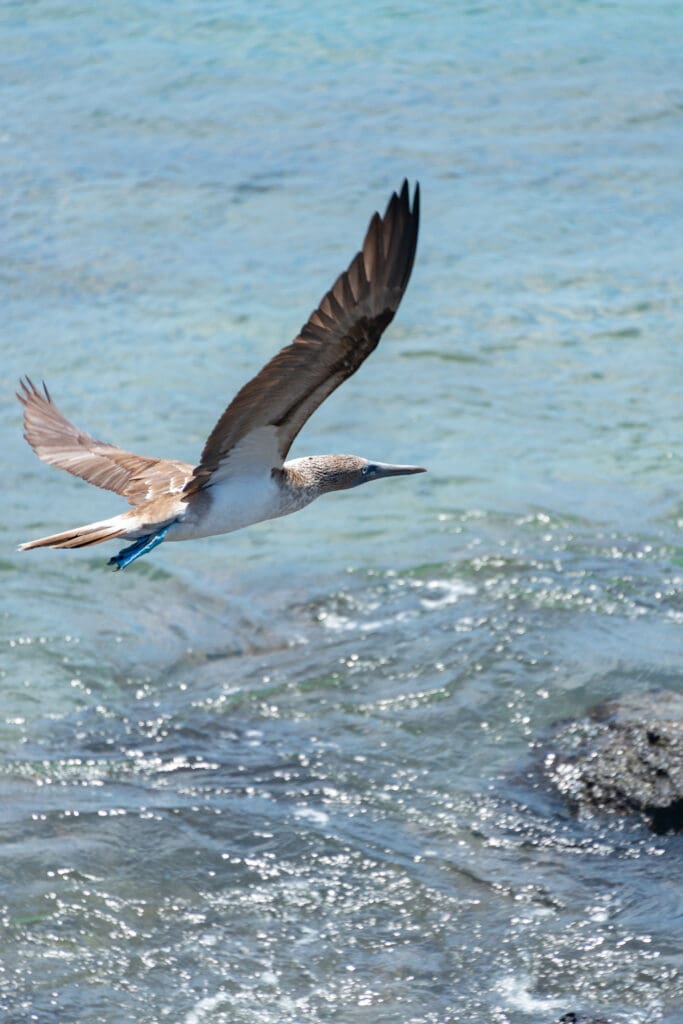

Educating Yourself and Others
Learning About Local Wildlife
Before embarking on a wildlife tour, educate yourself about the local wildlife you will encounter. Learn about their behaviors, habitats, and the conservation status of different species. Take the time to understand their ecological role and the threats they face. By acquiring this knowledge, you enhance your experience and appreciation for the wildlife you encounter, enabling you to become a responsible advocate for their conservation.
Understanding Conservation Issues
Equipping yourself with an understanding of conservation issues is essential in promoting ethical wildlife tourism. Gain insight into the challenges faced by local communities, conservation organizations, and governments in protecting wildlife and their habitats. Familiarize yourself with the principles of sustainable development, habitat loss, poaching, and climate change. Advocacy and responsible decision-making stem from knowledge and understanding.
Sharing Knowledge Responsibly
Once you have educated yourself about wildlife and conservation issues, share your knowledge responsibly with others. Inform your friends, family, and fellow travelers about the importance of ethical wildlife tourism and the need for responsible behavior. Encourage them to choose ethical tour operators and engage in activities that support wildlife conservation. By spreading awareness and promoting responsible behavior, you contribute to the collective efforts in preserving wild places and their inhabitants.
Self-Reflection and Responsible Decision-Making
Assessing Personal Motivations
Engage in self-reflection to assess your motivations for participating in wildlife tourism. Examine why you are drawn to these experiences and consider whether your intentions align with ethical practices. Avoid activities that prioritize personal entertainment at the expense of animal welfare or environmental impact. By critically evaluating your motivations, you can make responsible decisions that prioritize the well-being of wildlife and their habitats.
Questioning the Ethics of Interactions
When engaging in wildlife tourism activities, it is essential to question the ethics of the interactions involved. Consider whether the activity imposes stress on the animals, disrupts their natural behaviors, or involves exploitation. Be mindful of any signs of animal mistreatment or inadequate living conditions. By questioning the ethics of interactions, you contribute to the demand for responsible and humane wildlife tourism practices.
Considering Alternative Forms of Wildlife Tourism
In your pursuit of ethical wildlife tourism, consider alternative forms of wildlife encounters that prioritize animal welfare and conservation. Rather than engaging in activities that involve direct contact or exploitation, opt for wildlife viewing experiences from a safe and respectful distance. Explore ethical alternatives such as wildlife safaris, birdwatching, or ecological tours that provide opportunities to observe and appreciate wildlife in their natural environments, without causing harm or stress to the animals.
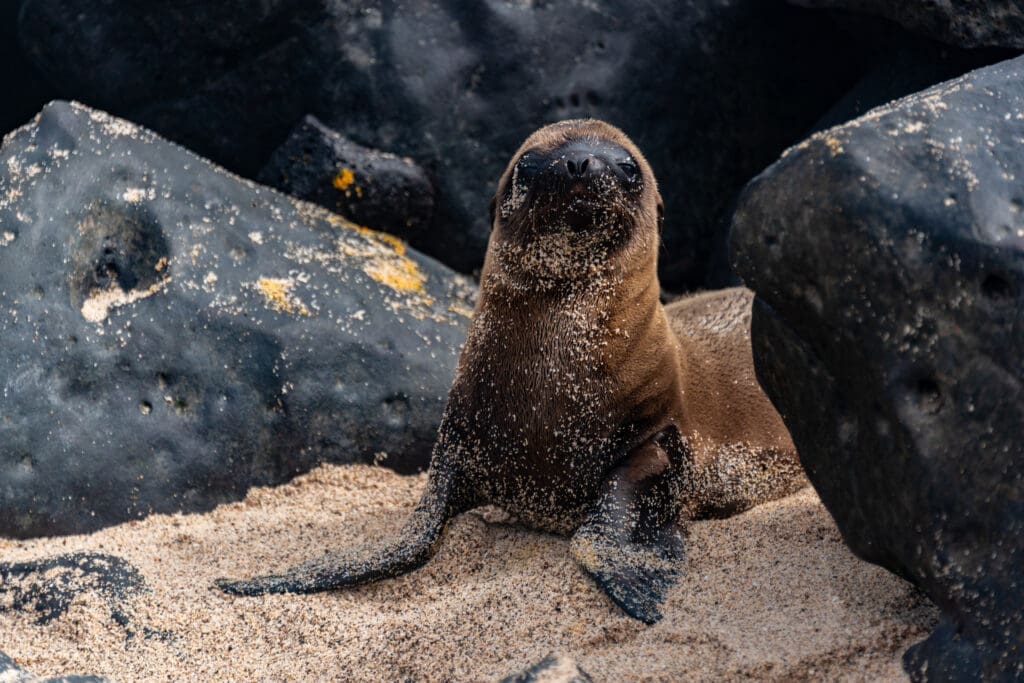

Common Ethical Dilemmas in Wildlife Tourism
Animal Captivity and Exploitation
Animal captivity and exploitation are significant ethical dilemmas in wildlife tourism. Avoid supporting activities that involve captive animals used for entertainment purposes, such as animal shows, circuses, or swimming with captive dolphins. These practices often involve cruel treatment, deprivation of natural behaviors, and contribute to the illegal wildlife trade. Opt instead for experiences that focus on observing animals in their natural habitats, where they can thrive freely.
Voluntourism and Wildlife Conservation
Voluntourism, or volunteer tourism, can be a positive way to contribute to wildlife conservation efforts. However, it is essential to critically evaluate voluntourism programs to ensure they are ethical and genuinely beneficial. Research the organizations offering these programs, ensuring they prioritize long-term conservation goals, provide appropriate training, and work closely with local communities. By choosing responsible voluntourism opportunities, you can actively contribute to wildlife conservation while respecting local communities and wildlife welfare.
Wildlife Photography Ethics
Wildlife photography can be a powerful tool in promoting awareness and appreciation for wildlife. However, it is essential to practice ethical wildlife photography to avoid causing harm or distress to the animals. Respect the boundaries and welfare of the animals by maintaining a safe distance and using telephoto lenses whenever possible. Avoid using disruptive flashes or noisy equipment that may startle the wildlife. By adhering to ethical photography practices, you can capture breathtaking images while minimizing your impact on the animals.
The Role of Governments and Regulation
Legal Frameworks and Enforcement
Governments play a crucial role in regulating and enforcing ethical wildlife tourism practices. They are responsible for establishing legal frameworks and guidelines that protect wildlife and their habitats. Support government initiatives and abide by the local laws and regulations when engaging in wildlife tourism activities. By respecting these regulations, you contribute to the preservation of wildlife and aid the efforts of governments in maintaining ethical wildlife tourism practices.
Certifications and Standards
Certifications and standards serve as useful tools for identifying and supporting ethical wildlife tourism operators. Look for certifications such as The Global Sustainable Tourism Council (GSTC) or The Responsible Tourism Partnership (RESP). These certifications ensure that operators adhere to specific sustainability criteria, including conservation practices, waste management, and respect for local communities. By choosing certified operators, you can be confident that your wildlife encounters will be conducted responsibly and contribute positively to wildlife conservation.
Advocacy and Awareness
Governments play a vital role in advocating for ethical wildlife tourism and raising awareness among the public. Support government-led initiatives that aim to educate and inform the public about responsible wildlife tourism practices. Stay updated on new policies, regulations, and campaigns related to ethical wildlife tourism and actively engage with these initiatives. By participating in advocacy and awareness efforts, you contribute to shaping a sustainable and responsible wildlife tourism industry.
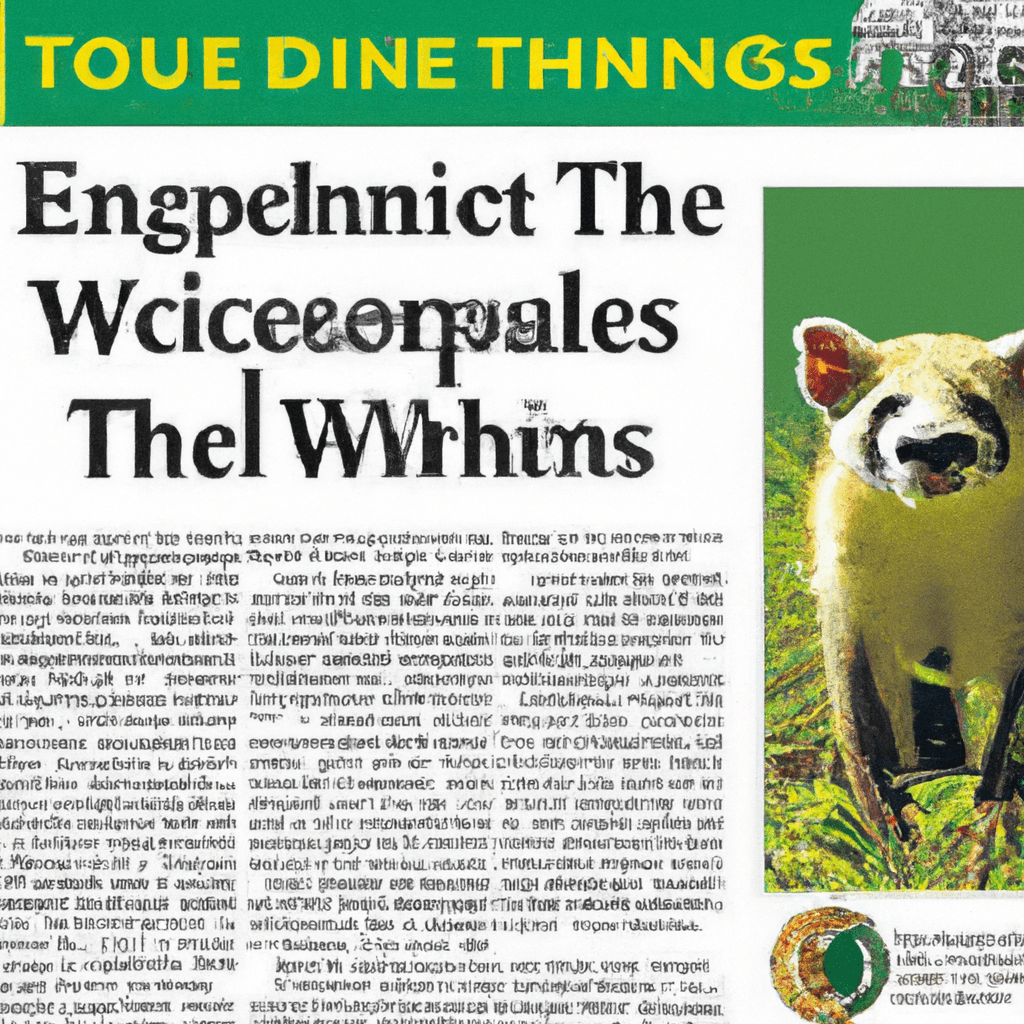

Promoting Sustainable Wildlife Tourism
Supporting Conservation Projects
Promoting sustainable wildlife tourism involves actively supporting conservation projects. Identify organizations and initiatives dedicated to the preservation of wildlife and their habitats. Contribute through donations or volunteer your time and expertise to assist in their conservation efforts. By actively participating in these projects, you become an agent of positive change, supporting the long-term sustainability of wildlife tourism.
Choosing Responsible Accommodations
When planning your wildlife tour, choose accommodations that prioritize sustainability and responsible practices. Look for eco-friendly lodges or resorts that minimize their environmental footprint, support local communities, and implement conservation initiatives. Avoid accommodations that exploit wildlife or their habitats. By selecting responsible accommodations, you contribute to the overall sustainability of your wildlife tour experience.
Reducing Environmental Footprint
Minimizing your environmental footprint is crucial for promoting sustainable wildlife tourism. Choose transportation methods with lower emissions, such as public transportation or hybrid vehicles. Carry reusable water bottles and avoid single-use plastics. Dispose of waste responsibly and follow designated trails to minimize habitat destruction. By adopting sustainable practices, you can ensure that your wildlife tour has a minimal impact on the environment, allowing future generations to enjoy the wonders of nature.
Ending Wildlife Tourism Cruelty
Campaigns and Initiatives
Ending wildlife tourism cruelty requires collective efforts through campaigns and initiatives. Support organizations and campaigns that advocate for the abolition of unethical practices, such as captive animal displays or inhumane wildlife interactions. Sign petitions, engage with social media campaigns, and spread awareness about the negative consequences of wildlife tourism cruelty. By actively participating in these campaigns, you become an agent of change, working towards ending the exploitation of wildlife for tourism purposes.
Boycotts and Petitions
Boycotts and petitions are powerful tools for expressing opposition to unethical wildlife tourism practices. If you become aware of an operator or establishment involved in animal cruelty or exploitation, consider boycotting their services or signing petitions demanding changes. Ensure that your boycott is informed and targeted at the specific unethical practices, rather than harming the local communities. By using these peaceful means, you actively contribute to the movement towards responsible and ethical wildlife tourism.
Promoting Responsible Alternatives
Promoting responsible alternatives to unethical wildlife tourism is crucial in creating a sustainable industry. Educate others about the negative impacts of unethical practices and offer alternative options that prioritize animal welfare and conservation. Encourage travelers to choose ethical operators and engage in wildlife tourism activities that focus on observation, education, and supporting conservation efforts. By promoting responsible alternatives, you help shape a future where wildlife tourism is both ethical and sustainable.
In conclusion, ethical wildlife tourism is vital for the conservation of wildlife and their habitats while supporting local communities. By choosing the right wildlife tour, practicing responsible behavior, respecting local communities, educating yourself and others, and making responsible decisions, you actively contribute to the preservation of our planet’s biodiversity. Together, we can promote sustainable wildlife tourism and ensure a future where humans and wildlife coexist harmoniously.
